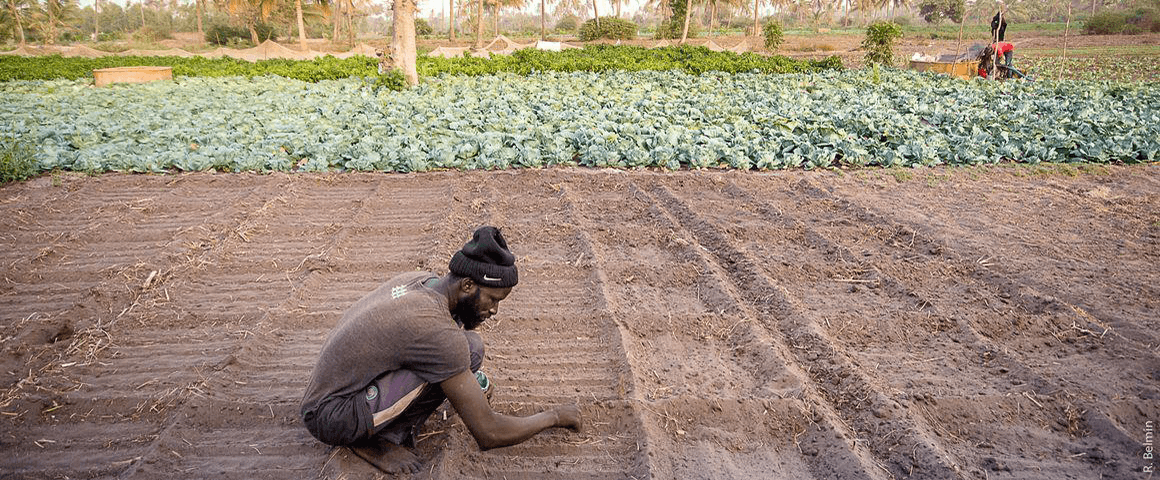- Home
- Worldwide
- CIRAD worldwide
- Projects
- COEX project
Adaptive governance for co-existence of crop diversity management systems - COEX

A farmer in the Mboro region of Senegal planting his field © R. Belmin, Cirad
Issues
The CoEx project set out from the observation that the political discourse on seed systems is primarily based on a “formal/informal” binary vision. Such a characterization reflects neither the reality on the ground, nor the many research results that counter this dichotomy. On the initiative of the project, a group of researchers from different disciplines in the social and biological sciences examined a series of activities and a way of organizing research in partnership that might help move beyond this binary view of the debate.
Description
The CoEx project was structured in three work packages:
- Analysis of the regulations and modalities of seed governance systems (access and management);
- Field analysis of the diversity of practices in seed supplies, circulation and use;
- Design and implementation of governance mechanisms for seed management, on the scale of collaboration between researchers and smallholder organizations.
To that end, the project was notably involved in up to 19 African and French Masters courses and two co-funded theses.
Results obtained
- Greater ability to characterize crop diversity management systems that more effectively account for actual seed use, circulation and supply practices in the field;
- A better understanding, by the stakeholders themselves on different scales, of the diversity of crop diversity management systems;
- A better grasp by researchers and research organizations of their responsibility, through research projects or actual management of crop diversity in ex situ collections, in the persistence of binary approaches.
The CoEx project depended on the corresponding local stakeholders (smallholder organizations) more effectively taking on board the dynamics of crop diversity on different scales, and on a better understanding of the scientific challenges for strengthening and fostering exchanges with local policy bodies.
























